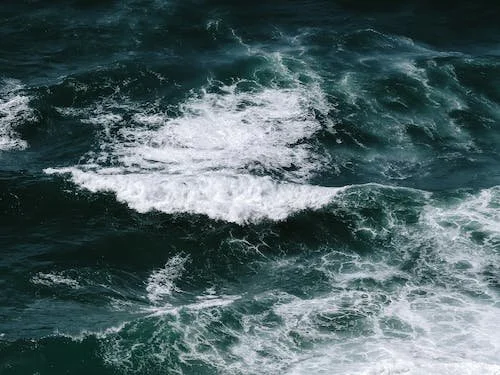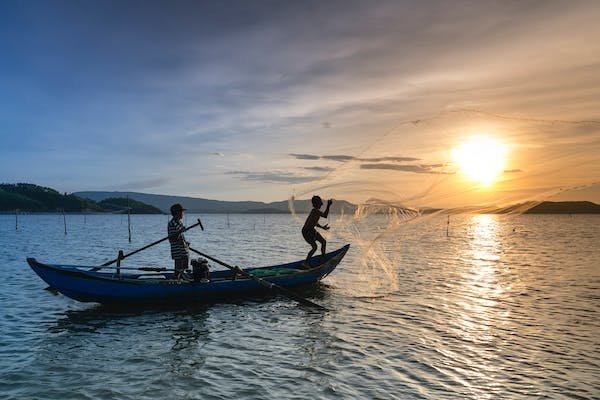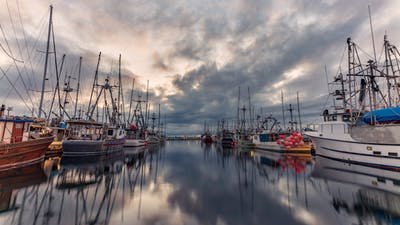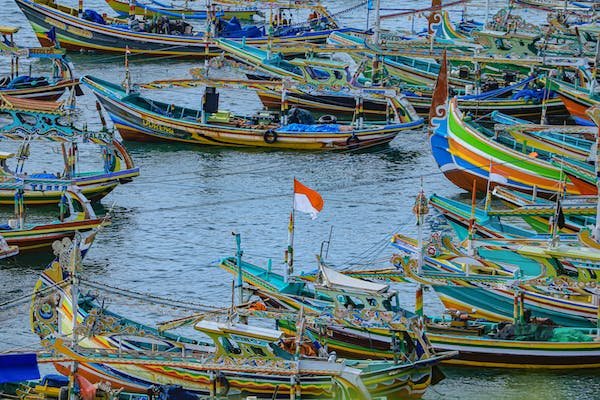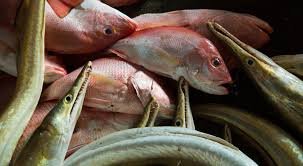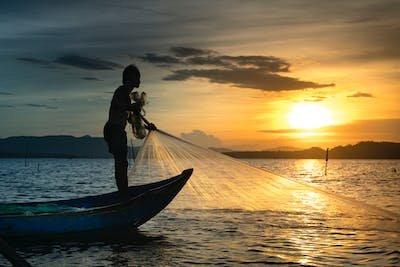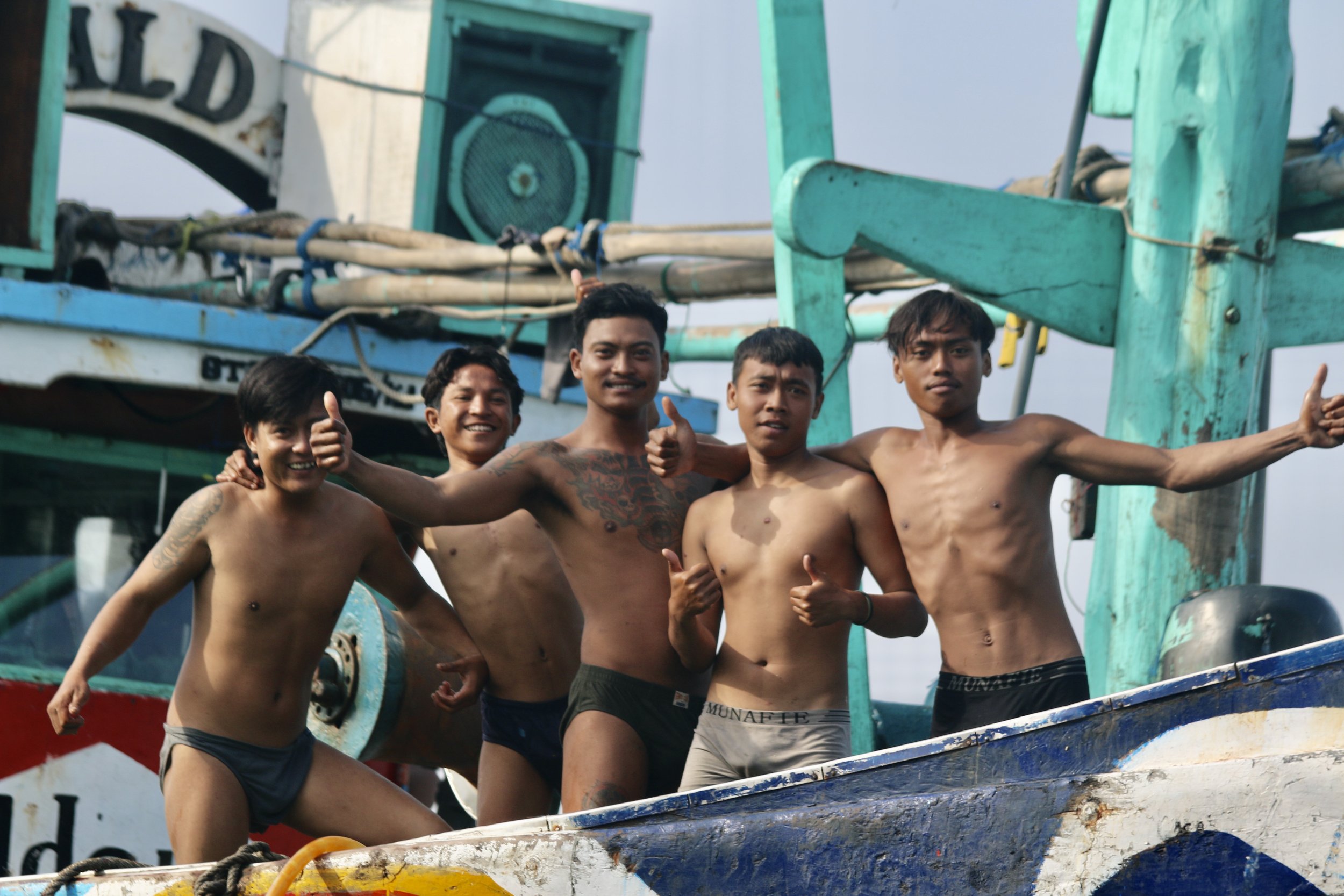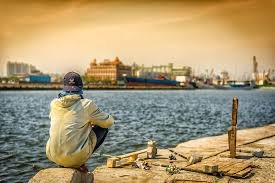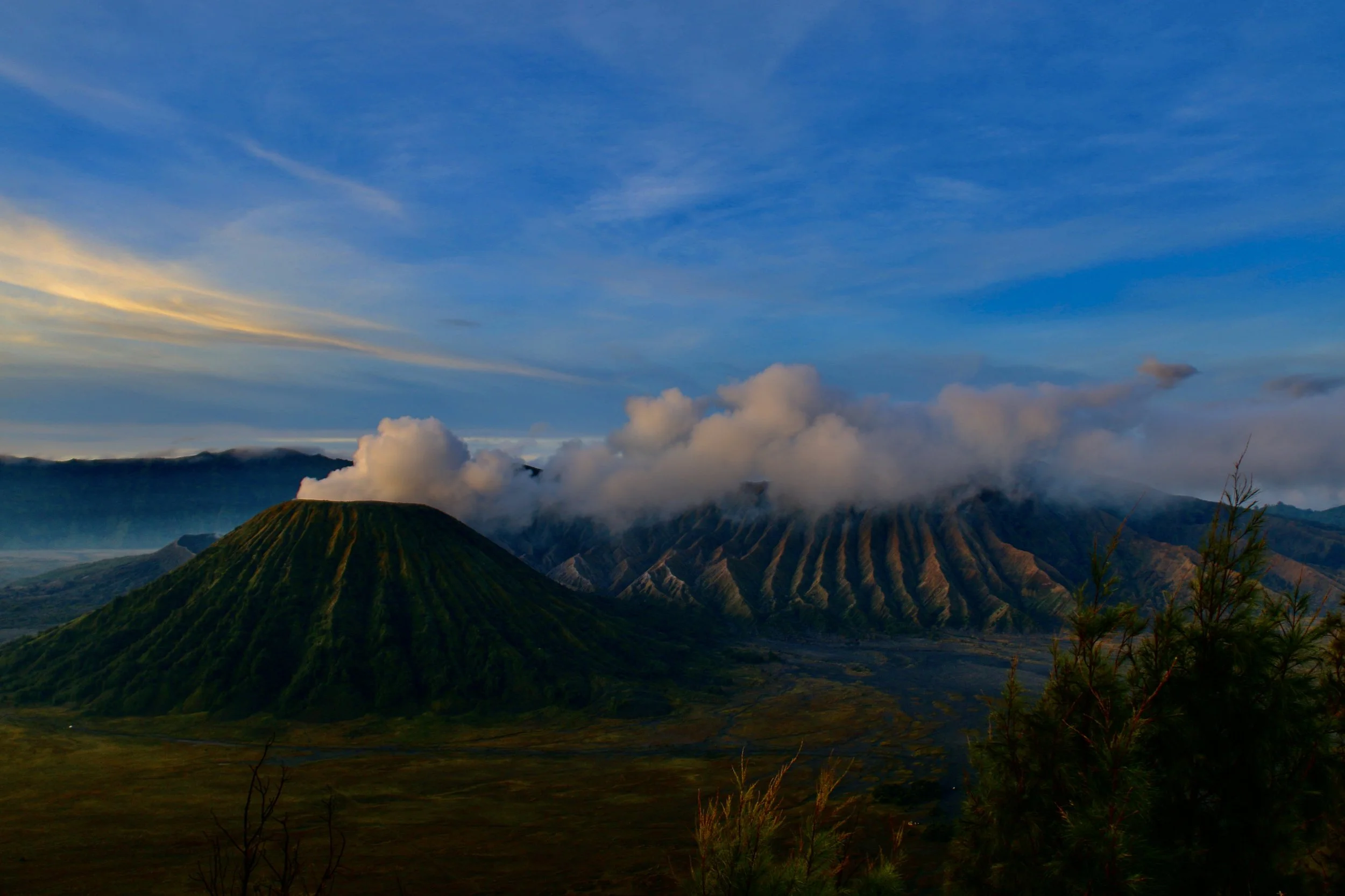Beyond The Horizon. The Dystopian Wilderness Of The World’s Oceans.
On those days when I wake early enough, my morning ritual is to head to the beach, and if I time it just right, I will arrive to witness yet another spectacular sunrise.
It never fails to disappoint as the slow assent of a giant, orange sun illuminates the sea and its surrounds, bathing it in ethereal colours.
It is always majestic.
And yet, I know that just beyond the horizon exists an ocean which is in many ways a wild, dystopian wilderness for, out of sight of land, it harbours a plethora of unimaginable dark humanities.
That immense, watery desert, so beautiful from shore, can be a lawless place for, 'out there. the laws and checks and balances that apply to us on land are pretty much non-existent and are as fluid as the ocean itself.
Today, technology and the internet allow us to travel to any place on the planet accompanied by tomes of information, enabling us to discover areas of the world that were always hidden. However, when it comes to the vast watery plains of the ocean, it is still a place of mystery.
Fifty per cent of the world's population live less than one hundred kilometres distant from the sea as we have always been drawn to it like a moth to a flame.
Over sixty million people are at sea at any one time earning their living working on fishing boats. Another two million souls ply their trade working aboard freighters, cruise ship liners, oil tankers and any of the thousands of merchant ships endlessly crisscrossing the world's oceans.
From my vantage point on the beach, I often see a steady stream of merchant vessels carrying cargo hither and thither, heading to any of the 17,000 islands that make up this magnificent archipelago. These hard-working vessels carry as much as 90% of goods we greedily consume, arriving from far-flung places across the globe, some of which we have never even heard of.
For the last few months, I have been fortunate to work with a large fishing conglomerate out of Portland, Maine, who now ply much of their trade fishing the warm waters of South East Asia. The USA currently imports ninety-four per cent of its seafood which is astonishing given the size of its coastline.
The reason for this offshore expansion is that its coastal waters have been severely depleted after decades of overfishing by too many fleets catching too – few fish, which is why off companies are harvesting fish from the waters of Indonesia, Thailand and Vietnam. One good thing to come out of this is that, on the surface, these companies are implementing measures to ensure their catches are responsibly and ethically harvested.
Some laws govern the oceans. However, the real problem is the lax enforcement. On land, the country's borders are sacrosanct, but at sea, boundaries are less clear and tend to be ignored, making poaching extremely easy for some marauding fishing fleets.
Consequently, one in every five fish or roughly twenty per cent of all fish that arrives on a dinner plate, is more than likely poached! Given that the trade in illegal fishing is worth approximately twenty billion dollars per year meaning that it is almost an impossible task to stamp it out. Illegal fishing across the planet is so rampant that most of the world's fish stocks are in crisis due to rampant overfishing. If that is not enough, it is estimated that by 2050 there will be more plastic waste by weight floating in the oceans than there are fish !!
Our oceans are becoming increasingly depleted and polluted due partly to governments having neither the recourses nor the inclination to protect them.
Add to these woes is the appalling treatment of indentured fishermen who live and work on board in atrocious conditions. Governments and the communities from which these fishermen come are aware of the problems, but the sheer vastness of the oceans makes it difficult to chase down the captains and the owners of fleets who flagrantly disregard the laws of the seas.
Of those boats apprehended by authorities and charged with the mistreatment and cruelty inflicted on the crews are unfortunately few and far between. The young men and often boys sometimes reluctantly speak up but are fearful of the repercussions that might befall their families at home, who might be targeted by unscrupulous recruiters to whom the fishermen are indentured.
These hard-working seamen are often treated no better than animals. Food on board usually consists of fish and weevil-infested rice, barely drinkable water, shared toilets without running water and sleeping quarters alive with cockroaches.
The crew is expected to work up to eighteen hours a day, with draconian captains docking their meagre wages if they work too slowly. These are hardly isolated incidents as, out of sight of land, human rights and working conditions are akin to modern-day slavery.
On my journeys to some of the larger fishing ports of Java and Bali, I was gratified to find that foreign and some of the larger local seafood companies and producers are working together to create better working conditions for crews. In addition, their vessels are closely monitored to ensure that their catches conform to international standards, such as returning undersized fish to the waters.
There are glimmers of hope that the industry will recognize that if current practices continue at the current rate, there will soon be no fish left to harvest.
International watchdogs are doing their best by ensuring that all vessels are equipped with tracking devices that monitor their journeys, checking that their catch is not poached from protected waters.
Thus, it seems that the larger fishing companies and producers will have to police their local fleets by adopting sustainable quotas and creating transparent supply chains from 'boat to throat'.
It is a game of inches, but they can make a difference one village at a time, one fisher at a time, one fish at a time.
We can only hope.
Bali, Indonesia, September 2022
My thanks to Ian Urbina, whose excellent book, The Outlaw Ocean, provided much of the inspiration for this piece. Also, to Jerry Knecht of North Atlantic Seafood LLC, who has educated me in the ways and means of the fishing industry in S.E. Asia over the past few months.
Paul v Walters is the best-selling author of several novels and an anthology of short stories. When he is not cocooned in sloth and procrastination in his house in Bali, he occasionally rises to scribble for several International travel and vox pop journals.

